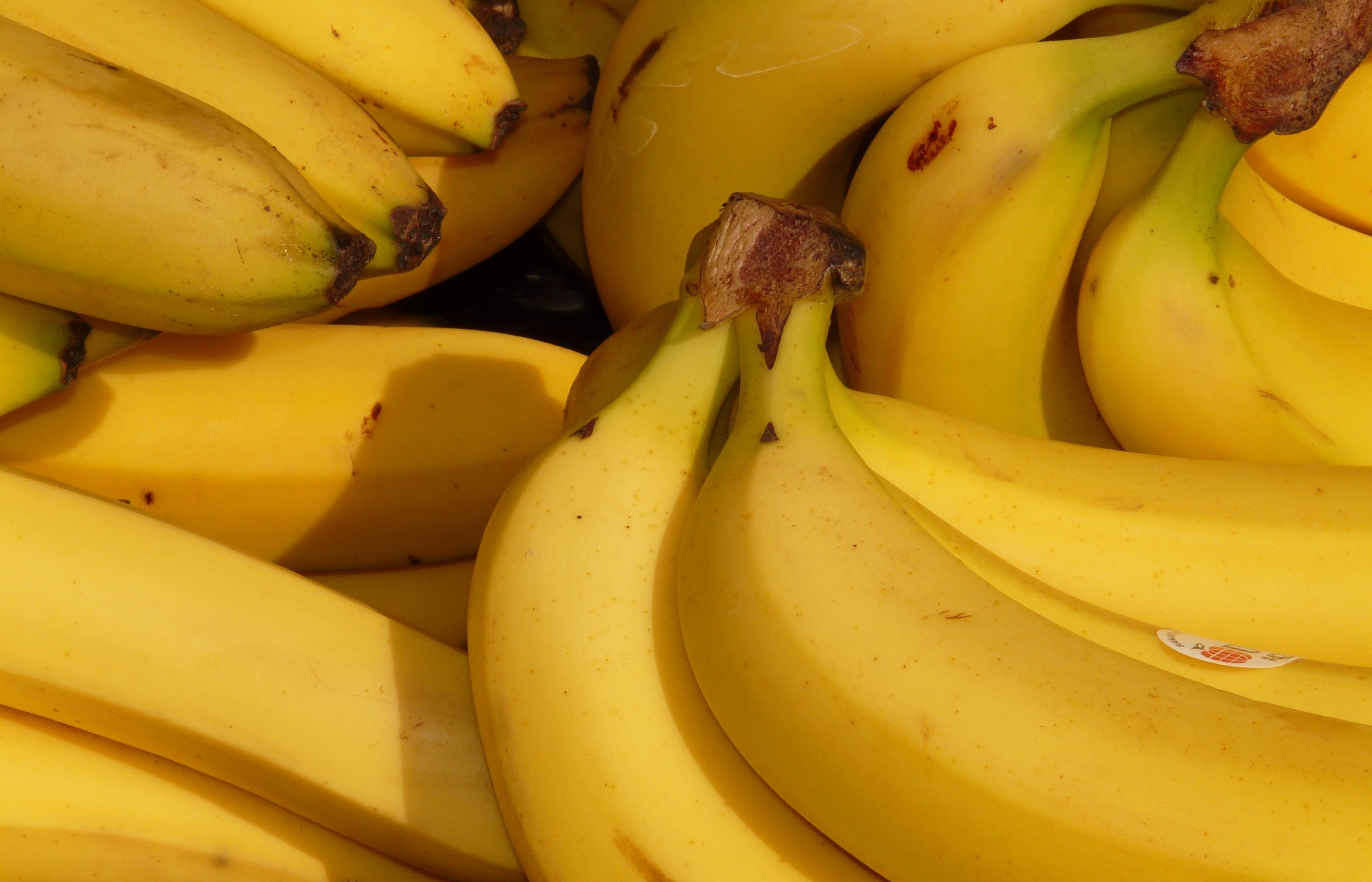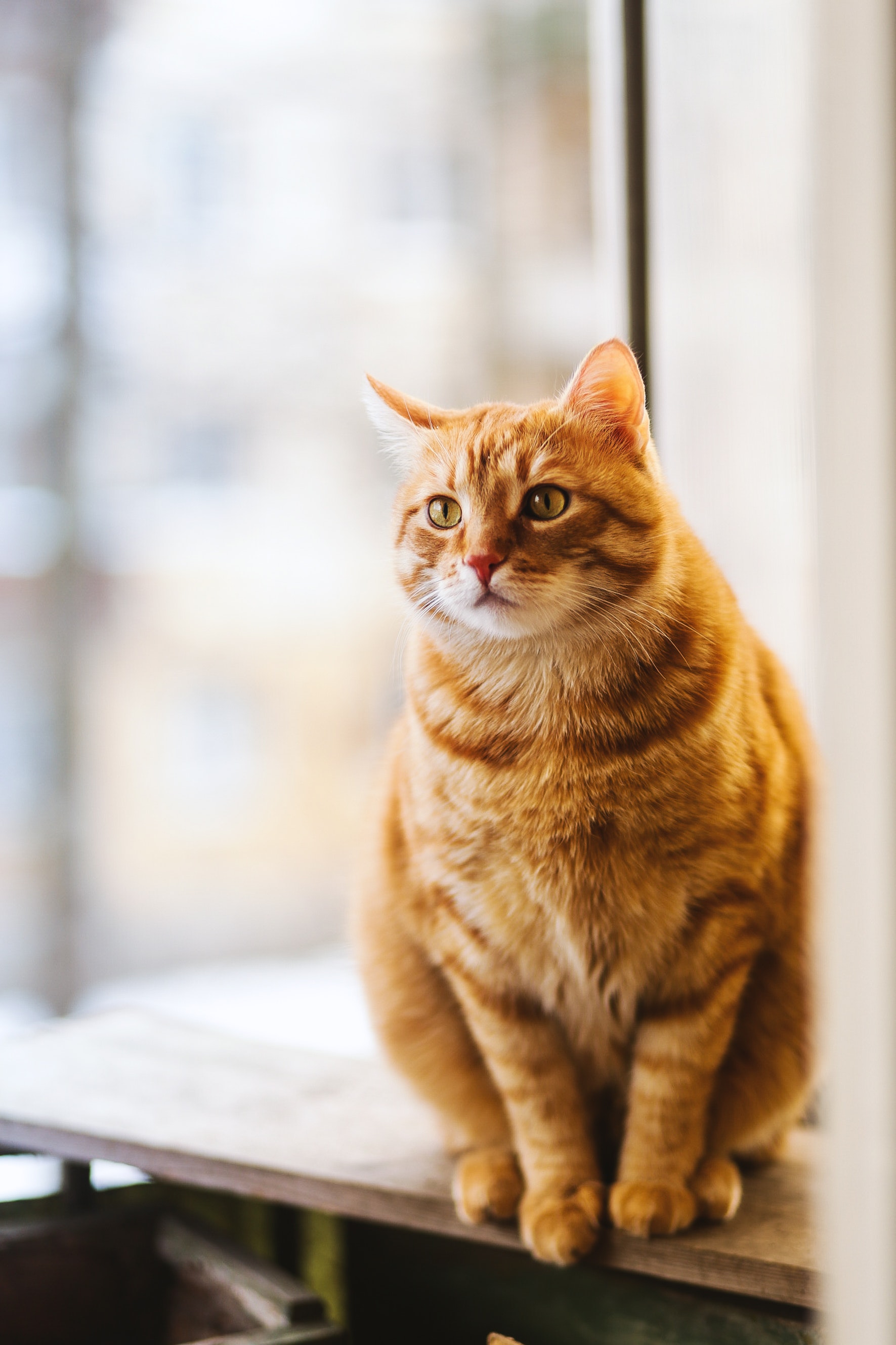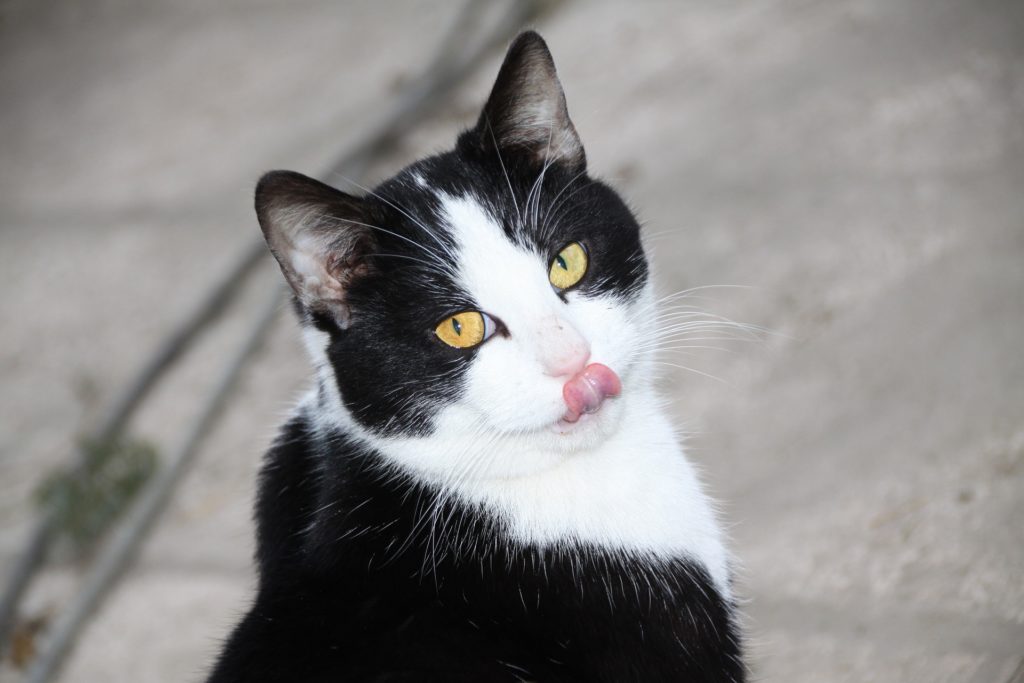Bananas are a popular fruit among humans and serve as a good source of potassium and fiber. However, not all fruit benefits cats in the same  way. Cats are mainly meat eaters. They don’t receive as many of their nutrients through plant-based foods. When planning a complete diet plan for your cat, you still may think to incorporate some fruit and wonder, can cats eat bananas? The answer is technically, “yes.” Bananas aren’t toxic to cats but they don’t provide too much nutritional value to them either. Potassium is good for heart and kidney function, however the excess sugar and carbs can lead to feline obesity in some cases. Also, cats may have difficulty digesting bananas which leads to other health problems.
way. Cats are mainly meat eaters. They don’t receive as many of their nutrients through plant-based foods. When planning a complete diet plan for your cat, you still may think to incorporate some fruit and wonder, can cats eat bananas? The answer is technically, “yes.” Bananas aren’t toxic to cats but they don’t provide too much nutritional value to them either. Potassium is good for heart and kidney function, however the excess sugar and carbs can lead to feline obesity in some cases. Also, cats may have difficulty digesting bananas which leads to other health problems.
Giving your cat bites of a banana every now and then is alright, but it shouldn’t be their go-to snack. The other question to consider other than can cats eat bananas is, will they? Typically, cats enjoy foods like fish, liver, and good ol’ cat food from a can. Stick to what’s best for their diet and what they are drawn to most.
Fruit Alternatives for Cats
Cats digest and process foods differently than humans or other animals. Eating bananas may cause them to have an upset stomach. This could lead to symptoms including cat diarrhea, vomiting, or lack of appetite in felines. Other fruits more commonly suggested for cats are blueberries, mango, or apples that have been cut into small pieces. It all depends on how your cat responds to these foods. None of these fruits are harmful, but they also don’t bring as much nutritional value as their regular cat food. Whenever introducing new foods of any kind, start small, and monitor any immediate reactions.
It may seem like adding fruit to the diet provides an extra sweet treat for them to enjoy. However, many cats are finicky eaters and prefer a tried and true food regimen. Fortunately, there is a variety of cat foods to choose from that has a mix of vitamins and other essential ingredients to help maintain a cat’s health. Most of them come in different flavors and you can choose between dry and wet foods, too. With so many nutritious cat snacks available, fruit may not be the most suitable option for your feline friend.
A Cat’s Diet: Consider Activity Level and Age
Generally speaking, bananas are higher in carbs and sugar compared to other foods. Cats often
 3don’t get enough exercise during the day to burnoff or break down carbs like humans would. This can lead to conditions such as feline digestive issues, lethargy, and obesity, which in itself can lead to serious health problems. To avoid an overweight cat, regulate mealtimes and ask your veterinarian, how much should I feed my cat? He’ll be perfectly happy with eating from his dish without extra treats. If your cat seems to be extra hungry all the time, there could be a medical reason why your cat’s appetite is never satisfied. Note any changes in diet and eating habits, especially as your cat grows older, and discuss them with a veterinarian. The more you feed your cat, the more he’ll likely eat what’s in front of him and not consider when he’s full. Drinking more water throughout the day may also be a remedy for a cat that constantly wants to eat.
3don’t get enough exercise during the day to burnoff or break down carbs like humans would. This can lead to conditions such as feline digestive issues, lethargy, and obesity, which in itself can lead to serious health problems. To avoid an overweight cat, regulate mealtimes and ask your veterinarian, how much should I feed my cat? He’ll be perfectly happy with eating from his dish without extra treats. If your cat seems to be extra hungry all the time, there could be a medical reason why your cat’s appetite is never satisfied. Note any changes in diet and eating habits, especially as your cat grows older, and discuss them with a veterinarian. The more you feed your cat, the more he’ll likely eat what’s in front of him and not consider when he’s full. Drinking more water throughout the day may also be a remedy for a cat that constantly wants to eat.
Another thing to consider when planning your cat’s diet is age. Younger cats may drink milk or ingest other dairy because they are able to process it easier than older cats. Kittens need it more for the growth development of their muscles and bones. As cats begin to age, their digestive system isn’t able to break down enzymes, which can lead to tummy troubles. The same can be said with any foods, including bananas. If your cat likes the fruit, mash up small pieces to make it easier to digest. Over time, the affinity for the fruit may fade.
Humans are lucky to have a variety of foods to choose from; there’s essentially a diet plan or fad for everyone. For cats, it’s a lot simpler. A cat food with vitamins and nutrients formulated specially for felines works just fine. Each cat has their own special preference when it comes to food. Unless your cat suffers from a vitamin deficiency or diagnosed health condition, go with the kind of food brand he likes the most.
Finding the Right Foods for Your Cat
Customize your cat’s diet plan by what he needs. This may change over time as he ages, develops certain health conditions, or changes food preferences. Bananas aren’t going to drastically alter his diet, but in some cases, there are better choices for nutrition.
Approve any whole foods with a veterinarian before feeding to your cat. When choosing cat foods, look for brands that have real ingredients and a good blend of the vitamins a cat needs. Read reviews from other pet owners to find what has worked best for different breeds at different stages of life. Finally, take into consideration any special dietary needs your cat has. In addition to healthy growth and development, does your furry friend suffer from feline arthritis, cat anxiety, or any general aging issues? At the end of the day, cats feel healthier when they are provided with the right foods. For further questions on cat nutrition, visit our blog or talk to a professional veterinarian today.
Sources:
LD, Megan Ware RDN. “Bananas: Health Benefits, Tips, and Risks.” Medical News Today, 28 Nov. 2017, www.medicalnewstoday.com/articles/271157.php.
Can Cats Eat Bananas? Chewy. 26 May 2018, petcentral.chewy.com/nutrition-pet-diet-tips-can-cats-eat-bananas/.




